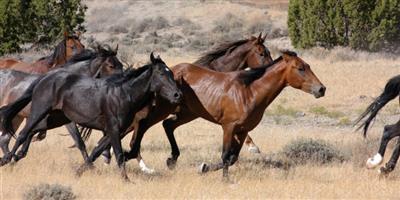Laramie and Converse counties join Platte County in reporting confirmed cases of vesicular stomatitis (VSV) this week. According to Dr. Jim Logan, Wyoming State Veterinarian, on August 2, 2019, lab work confirmed a horse in Converse County is infected with vesicular stomatitis. This makes the fifth horse in Wyoming confirmed with VSV as three horses have been discovered in Platte county, one in Laramie county and now one in Converse county with another case under investigation. It is believed the spread of the virus has mostly been caused by biting insects as they do not believe the infected horses have had much movement. The good news is the infection has stayed only to horses and has not spread to other species. Dr. Logan says the biggest concern is all the county and state fairs going on across the state, especially with state fair a little over a week away set in an infected area. The Wyoming Livestock Board is working with state fair officials to try to avoid any issues with VSV. The vector season just starting in Wyoming also has drawn concern.
Vesicular Stomatitis (VSV) is a viral disease that commonly affects horses, cattle and pigs but can affect sheep, goats and wild animals. The major concern with this disease is that it mimics Foot and Mouth Disease (FMD), which has been eradicated in the United States since 1929. Introduction of FMD into the U.S. would have tremendous economic consequences so the U.S. Department of Agriculture’s Animal and Plant Health Inspection Service (USDA-APHIS) monitors any disease that can look similar to FMD. The only way to distinguish VSV from FMD in livestock is through laboratory tests. Horses are not affected by FMD. Oral lesions are a common indicator that a horse may be infected with VSV.
Dr. Logan advises livestock owners “to avoid insects, use insect repellents around livestock areas to mitigate biting vectors habitat, and drain stagnate water.” Dr. Logan also says “be sure not to share tack and feed buckets while you’re around other animals.” If you think your livestock may be infected, contact your local veterinarian immediately.
####
Northern Ag Network


